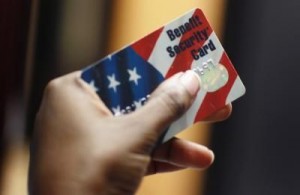Misreporting income can land Florida EBT fraudsters welfare benefits

By William Patrick | Florida Watchdog
TALLAHASSEE, Fla. — Afraid to lose her job if she’s identified, a Broward County woman tells Watchdog.org her boss’ girlfriend is ripping off Florida’s welfare safety-net programs while working alongside her and being compensated off the books.
SNAP: Over 70 percent of fraud detected in a review of Florida’s food assistance program was due to non-reporting or under-reporting of income, according to a state report.
How does she know? Because her coworker is fairly open about it — even while living in a nice home and driving a respectable vehicle.
The scenario isn’t far-fetched, though it’s difficult for us to fully verify. It’s also difficult to know exactly how rampant this kind of fraud is in the Sunshine State, though it undoubtedly happens.
“Over 70 percent of the fraud that was detected in our sample was related to non-reporting or under-reporting of income,” concludes a state analysis of Florida’s Supplemental Nutrition Assistance Program, formerly known as food stamps.
How does the Florida Department of Children and Families, responsible for determining eligibility for welfare benefits, verify income and other eligibility criteria applicants claim when they apply?
They wouldn’t tell us. Rather, a DCF spokesperson said in an email, “It would be counter-productive to disclose what those tools are (publicly).”
A fair point, although the public surely has a right to know what safeguards are in place to protect their tax dollars. Especially since, as Watchdog.org previously reported, DCF processed nearly $48 million worth of inaccurate payments last year in SNAP benefits alone. That’s without factoring in the full scope of suspected waste, fraud and abuse.
DCF also determines eligibility for TANF and Medicaid, both large-scale cash and medical assistance programs.
While the $48 million in inaccurate food payments may seem like a lot, they actually amount to the second lowest error rate in the country, according to U.S. Department of Agriculture records. As a result, Florida received a $7 million taxpayer-funded bonus, or more than 14 percent of its misspent funding.
To be clear, the state’s SNAP error rate is not a measure of fraud but of how accurately DCF is paying eligible SNAP claimants. Fraud is estimated to be much more prevalent, and typically reported when attempts to rip off the system are discovered.
Department officials say 33,870 investigations were conducted last year, though it was not revealed to Watchdog.org how many of those investigations uncovered actual instances of fraud. Instead, a two-year old Florida Strike Force report was forwarded.
“The estimate of fraud incidence in the Florida SNAP program is 7.5 percent. For the purpose of this estimate, fraud includes any potential overpayment of benefits due to a misrepresentation of information, regardless of size,” the report reads.
In 2013, Florida received nearly $6 billion in SNAP funding from the federal government for 3.5 million enrollees. In 2008, Florida’s SNAP budget was $1.8 billion.
Larry Benson, director of strategic alliances for Lexis Nexus, a data company also specializing in institutional fraud prevention, said the problem is the way the system is set up.
“When people apply for benefits, agencies do their best but assume that the information applicants are self-reporting is accurate,” he said.
Benson, author of a soon-to-be-released book, “The Coming Tsunami of Fraud,” said online and over the phone applications along with the rise Electronic Benefits Transfer programs makes submitting false information easier than ever.
EBT is an electronic system the government uses to make direct deposits to program debit cards.
Floridians can sign-up for benefits online through DCF’s ACCESS Florida, or Automated Community Connection to Economic Self Sufficiency portal.
DCF has no authority to bring criminal charges or make arrests, but the agency does contact law enforcement authorities when fraud is suspected.
“Florida’s SNAP system would benefit from routine computer comparisons of recipient income (as reported on applications) vs. earned income as reported to the Department of Economic Opportunity, along with follow-up on identified discrepancies,” the report concludes.
“It’s appalling,” said the Broward County whistleblower. “They’re nothing more than scam artists looking for the easy way to get something for nothing. They’re cheating every taxpayer out there.”
DCF does not consider welfare fraud a victimless crime, either. “Real people, real families are hurt when public benefits get into the hands of criminals,” states their website. The department says it uses a one of a kind authentication tool to combat identity theft.
Suspected public assistance fraud can be reported anonymously online at www.dcf.state.fl.us/access/ReportFraud/MainForm.aspx
Contact William Patrick at wpatrick@watchdog.org







